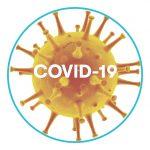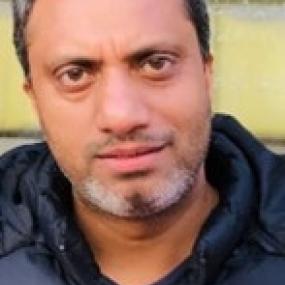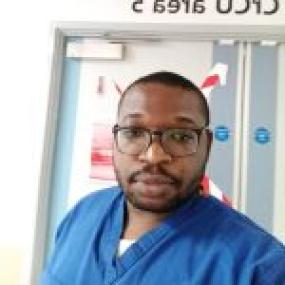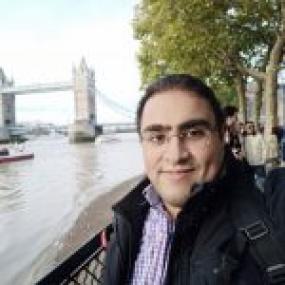Working as an International Medical Graduate with a BAME Background during COVID-19

International Medical Graduates (IMGs) account for approximately 25% of the current UK trainee doctor workforce and are predominantly of black Asian and minority ethnic (BAME) backgrounds. There has been a lot of discussion during the current COVID-19 crisis about IMGs and their contribution to the NHS, VISA/Immigration health surcharge and the more important topic of increased mortality among BAME doctors from COVID-19.

Consultant in Anaesthesia and Intensive Care Medicine, FICM Medical Training Initiative (MTI) Lead, FICM Careers Recruitment and Workforce (CRW) Committee member.
The NHS is diverse and the Faculty, through the CRW committee and WICM subcommittee, is keen to encourage, promote and support those who work in ICM.
Work is underway nationally to try and understand more about the issue of increased BAME mortality and any contributory factors. The National Institute for Health Research and UK Research and Innovation are jointly looking at research plans to support this. The plans will investigate any emerging evidence of an association between ethnicity and COVID-19 incidence and also adverse health outcomes. This includes research on the impact of COVID-19 specifically on people from BAME backgrounds working in health and social care.
Those working in ICM need to feel safe and supported. This includes sharing examples of good practice and ideas of how to support MTI and also BAME colleagues until more is known. The following is an account of how my trust has responded to concerns and the thoughts of those directly affected.
Introduction
The Intensive care unit (ICU) at Lancashire Teaching Hospitals NHS Trust has around 32 trainees and 3 Advanced Critical Care Practitioners (ACCPs) as part of its medical workforce. At any given time 15-20 of these are IMGs employed through our Medical Training Initiative (MTI), Certificate of Eligibility for Specialist Registration (CESR) programme and other posts suited for IMG doctors. Our successful international recruitment programme has been attributed to the excellent support and career progression we offer, along with our better understanding of the diverse medical, social and cultural backgrounds of the IMGs.
We put in a lot of effort in preparation for the COVID19 pandemic to make sure that the staff were fully trained, protected, supported and risk assessed to ensure at risk groups are shielded. I had some concerns about the well-being of the IMGs. As an IMG myself, I had insight into the issues affecting them such as being thousands of miles away from their families and perhaps living on their own with no local family support. It is also a concern to me that many IMGs may not speak up whether they have issues at home or work, therefore putting themselves at risk. Hypertension and diabetes are considered to be risk factors for COVID-19 and these are more prevalent in this group as well. I wanted to ensure that the measures we put in place were adequate to address these issues.
Most of the IMGs either could not visit their families due to travel restrictions and some of them returned early, cutting short their holidays as they wanted to be part of the team and support the department during this crisis. This was at a time when the cases in London were beginning to rise with very few cases in their home countries, which demonstrated the commitment and sacrifice these doctors are ready to make for our department/hospital, the NHS and the British public. The trends of increased infection rate and mortality among BAME doctors concerned me and prompted more regular discussions with them about clinical work, protective equipment and the health and wellbeing of both them and their families. I could not imagine seeing any of them being affected, especially if it was somebody who came back from leave to help us.
Below, several of our IMGs have shared their experiences which give an insight into measures that have worked, pressures they had to put up with outside of work and the impact of COVID19 on them and their families

Senior Clinical Fellow.

MTI Fellow
We completed our specialty training in Anaesthesia and Intensive care from India. Fortunately, unlike many of our colleagues, we do not have the risk factors that would put us at high risk of acquiring COVID-19 infection.
Collaborated teamwork in the unit was evident since the initial days where all members including consultants and nurses were stretching themselves beyond their comfort zones to formulate policies, protocols and guidelines. The Critical Care department supported us with videos and guidelines about donning and doffing Personal Protective Equipment (PPE), precautions during aerosol generating procedures and simulations. Regular updates and discussions on messaging groups have also been of tremendous help. All the members of the team were risk assessed and those at risk had an individualised plan put in place which included steps like covering non COVID-19 areas, and keeping away from ward/ED referrals to avoid exposure to undiagnosed and asymptomatic COVID-19 patients.
A certain proportion who cannot come to the hospital have contributed by helping with rota-structuring, non-clinical and managerial tasks from home. The quality and nature of PPE changed frequently and shortage of scrubs was at times a problem, but we never felt safety of staff was compromised in any way. We have access to shower and rest facilities after a long day, which is well maintained.
Staff well-being has been another area of focus which has surely added to workplace satisfaction and reduced mental fatigue. We are provided with access to psychology services and we feel looking after our mental and physical health is one of the key factors in this fight against the pandemic.
Staying miles away from our home countries and families has also had an impact. On the one hand we were concerned about our parents and rest of our family members and on the other hand our families/friends were worried about our safety knowing we are involved in treating the sickest of the COVID-19 patients. Therefore, we make sure to speak to our families every day without fail but the constant worry about our safety and resultant anxiety unfortunately cannot be resolved over telephone/ video calls which is stressful for all.
Being a BAME doctor has meant that in many instances we have been asked to be very circumspect by our friends and family, but being a part of this unit makes us confident about our safety.
We have shared the above experience with our colleagues and friends back in India and have stressed the importance of a pragmatic and holistic approach which includes pre-emptive planning, wellbeing and the need for a socioemotional approach which not only encourages but also keeps motivation in these difficult times.

ICM Specialty Trainee (ST3).
Mentoring and Supervision
It was my childhood sickness in Pakistan and being treated by a doctor with same first name as mine which inspired me to become a doctor. I was in the Middle East during the MERS CoV outbreak as a front line worker and I thought working in such challenging conditions was a lifetime experience.
Unfortunately, this time it was a bit different for me as I was diagnosed with diabetes and hypertension two years ago. These conditions are considered high risk factors for COVID-19 infection. Out trust offered us a discussion with our supervisors about any existent risk factors. On a personal note, it was very difficult for me to speak about it as I wanted to be a part of the team providing care for COVID patients, and so was moved from Anesthetics to ICU.
I discussed these issues with my colleagues and supervisor, who encouraged me and supported me all the way through and advised me to look after myself and continue working in ICU by looking after non COVID-19 patients. I had a formal risk assessment done and was relieved of COVID-19 duties.
My wife and children have thousands of questions each day related to COVID since they know that I am an ICU doctor. I can see the fear in their eyes when I leave for work but they have been very supportive and proud as they understand that this is what we are trained to do. My wife and children ensure that they go out at 8 PM every Thursday and clap for the front line workers.

MTI Fellow
Knowledge Sharing
Despite widespread reports of PPE scarcity worldwide, the unit has continued to have enough for each day. I have gained new experiences in clinical care as a result of Covid-19 especially in terms of different ventilation modes, recruitment manoeuvres and prone position ventilation. I have been able to share my experiences with my colleagues back home and that will help expand the pool of knowledge available to them. There are always family concerns especially with the reported deaths of BAME doctors but I try as much as possible to reassure them and always use my PPE as recommended.

Specialty doctor aiming for CESR in ICM.
Risk Assessment
I am a 40 year old veteran intensivist from Egypt, a husband and father of a brilliant 7-year-old boy.
The COVID-19 pandemic was, to say the least, an unexpected twist. Never in my life was I subjected to this kind of fear, uncertainty and restriction. Never in my career was I ever so frightened for my personal safety while treating my patients. The grim truth is that we could easily end up in the same ICU bed we treat our patients in. I am diabetic and hypertensive; added to my obesity I look like the best possible host for COVID-19. One of the consultants joked that he didn’t want to break his back proning me.
Is it all awful for me? Well, not totally. As much as I hated this situation, I couldn’t have asked for a better chance to see the true essence of this country and of the NHS. I witnessed how almost every member of staff exhausted themselves in finding ways to expand and adapt to this unprecedented situation. Once I revealed my concerns about my chronic health issues to one of the consultants, a prompt meeting with my educational supervisor was arranged and I was offered to shift my work to the much less busy Chorley unit
I preferred to make myself more useful in Preston, so I was assigned to work in the green zone in an attempt to minimise the chances of getting infected.
Before every shift, I could see the anxiety, worries and deep concerns in my wife’s eyes which she tried hiding so that I didn’t get affected by it. What if she or our son gets infected with the disease while all our relatives are thousands of miles away from us? The fact that so many affected health care workers were immigrants or BAME, like me, is so sad as much as surprising.
Conclusions
Various organisations and researchers are looking into the possible contribution of age, gender, ethnicity, chronic health conditions, lifestyle and socioeconomic status for the increased fatality among BAME health care professionals. Some of them are non-modifiable and redeployment or shielding may be the only option if any association is found. In the meanwhile, we have lot to learn from the personal experiences of staff like the doctors above, and can institute measures to mitigate the risks as much as possible.
It is hoped the experiences these doctors are sharing with their friends/colleagues back home will be of benefit to the public, staff and the healthcare systems of those countries in dealing with COVID-19 and future pandemics.
Staff and their employers have equal responsibility in making the work place as safe as possible. There is no doubt that the BAME staff are clearly worried for the safety of themselves and their families even with all the appropriate measures. Therefore, there should be adequate support to help them as needed or signpost to other services as required.
In summary the following measures can be beneficial in reducing the risk of COVID-19 infection and also promote physical and emotional wellbeing of staff.
- Risk assessment and appropriate deployment based on the assessment.
- Following Public Health England (PHE) guidance for Personal Protective Equipment (PPE).
- Mask fitting and availability of appropriate PPE, scrubs and shower facilities.
- Regular simulations/ training sessions/ drills on use of PPE and various clinical scenarios.
- Appropriate protocols and policies in place with clear communication.
- Frequent Educational supervisor/mentor meetings and if needed psychology services support.
- Management of workload, and adequate breaks during and after work.
- Encouragement to speak up regarding any concerns at work and appropriate mechanisms to raise/address those concerns
- Encouraging them to speak to colleagues, family and friends regularly, as this will promote Socio-emotional wellbeing.
